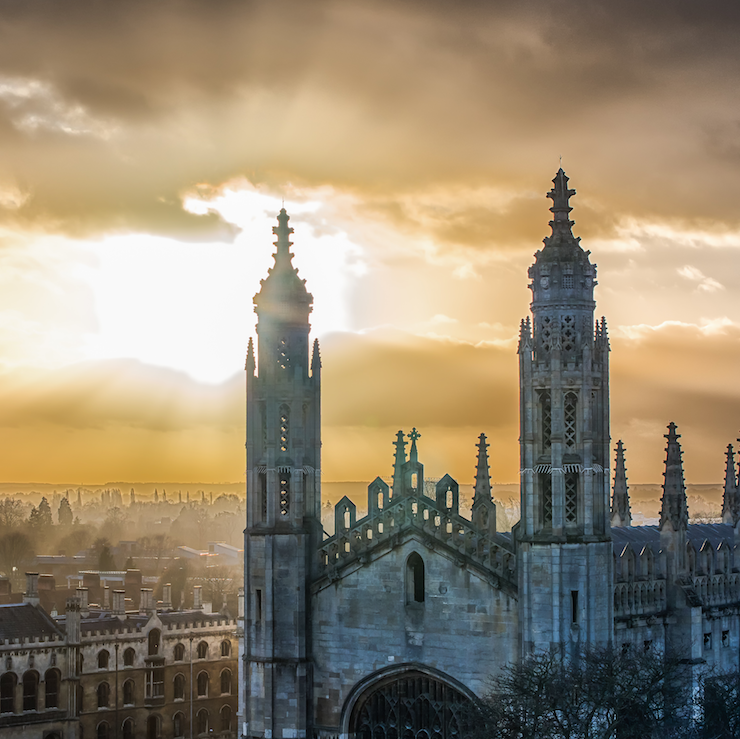Britain's gas storage levels are "concerningly low" with less than a week of demand available, the operator of the country's largest gas storage site has warned.
Plunging temperatures and high demand for gas-fired power are the main factors behind the low levels, Centrica said, adding that the need to replenish stocks could lead to rising prices ahead.
The UK is heavily reliant on gas for its home heating and also uses a significant amount for electricity generation.
National Grid data on Friday showed that natural gas accounted for 53% of power in the UK's system, with renewables offering just 16% of the country's needs.
Money latest: Tesco boss hits out at rivals over 'phoney' price war
Following the UK's decision to ditch carbon intensive coal from its energy mix, extra strain is heaped on gas during cold snaps because wind generation can often be lower due to high pressure weather systems.
Earlier this week, the UK's electricity grid operator issued a rare notice to power firms that sought higher output to prevent a greater risk of blackouts within the network.
As of 9 January, UK gas storage sites "were 26% lower than last year's inventory at the same time, leaving them around half full," Centrica said.
"This means the UK has less than a week of gas demand in store."
The Labour government is investing more heavily in clean energy to bolster the battle against climate change and has shunned pressure to bolster gas supplies through additional North Sea fields.
A Department for Energy Security and Net Zero spokesperson said in response to Centrica's storage alert: "We have no concerns and are confident we will have a sufficient gas supply and electricity capacity to meet demand this winter, due to our diverse and resilient energy system.
"Our mission to make Britain a clean energy superpower will maintain the UK's energy security in the long term - investing in clean homegrown power and protecting billpayers."
Centrica's Rough gas storage site in the North Sea, off England's east coast, makes up around half of the country's gas storage capacity.
Read more: Why UK energy prices look set to rise
Centrica has previously said it could invest £2bn to upgrade Rough further, but it would need support from the government through a price cap and floor mechanism to make this viable.
Gas storage was already lower than usual heading into December as a result of the early onset of winter and poor wind generation.
Combined with stubbornly high gas prices, this has meant it has been more difficult to top up storage over Christmas.
Centrica said the "situation is echoed across Europe" - where gas storage was at 69% at the start of this week, down from 84% during the same period the previous year.
Unlike Europe, Britain does not have a mandatory gas storage target.
"We are an outlier from the rest of Europe when it comes to the role of storage in our energy system and we are now seeing the implications of that," said Centrica chief executive Chris O'Shea.
"If Rough had been operating at full capacity in recent years, it would have saved UK households £100 from both
their gas and their electricity bills each winter," he added.
Gas stores are important as they enable countries to not only guarantee supplies during the transition to renewables but also avoid short term price spikes on wholesale markets.
High storage is also an important tool in moderating price swings.
But the UK has been particularly vulnerable in this space since Russia's invasion of Ukraine in February 2022, when sanctions meant key taps to Europe were shut off, forcing nations such as the UK and Germany to scramble for supplies.
It has left Europe reliant on the US for liquefied natural gas (LNG) in particular, with Norway a key exporter of natural gas via pipeline to the UK.
The need for Europe as a whole to replenish depleted stocks at the end of winter is among reasons why wholesale prices have remained elevated, leaving households and businesses at the mercy of further hikes to energy bills.
A National Gas spokesperson told Sky News: "The overall picture across Great Britain's eight main gas storage sites remains healthy - with average levels at just over 60% across the board.
"Britain obtains its gas from a diverse range of sources beyond that already in storage, meaning we are well placed to respond to demand this winter."

(c) Sky News 2025: Britain's gas storage levels 'concerningly low' after cold snap


 Nigel Farage says he 'can't be pushed or bullied' after Elon Musk said Reform needs new leader
Nigel Farage says he 'can't be pushed or bullied' after Elon Musk said Reform needs new leader
 Police search for missing sisters last seen three days ago near Aberdeen river
Police search for missing sisters last seen three days ago near Aberdeen river
 UK weather: Temperatures could fall as low as -20C after UK records coldest night in 15 years
UK weather: Temperatures could fall as low as -20C after UK records coldest night in 15 years
 Bedford: Three teenagers arrested after 17-year-old boy fatally stabbed near bus station
Bedford: Three teenagers arrested after 17-year-old boy fatally stabbed near bus station

